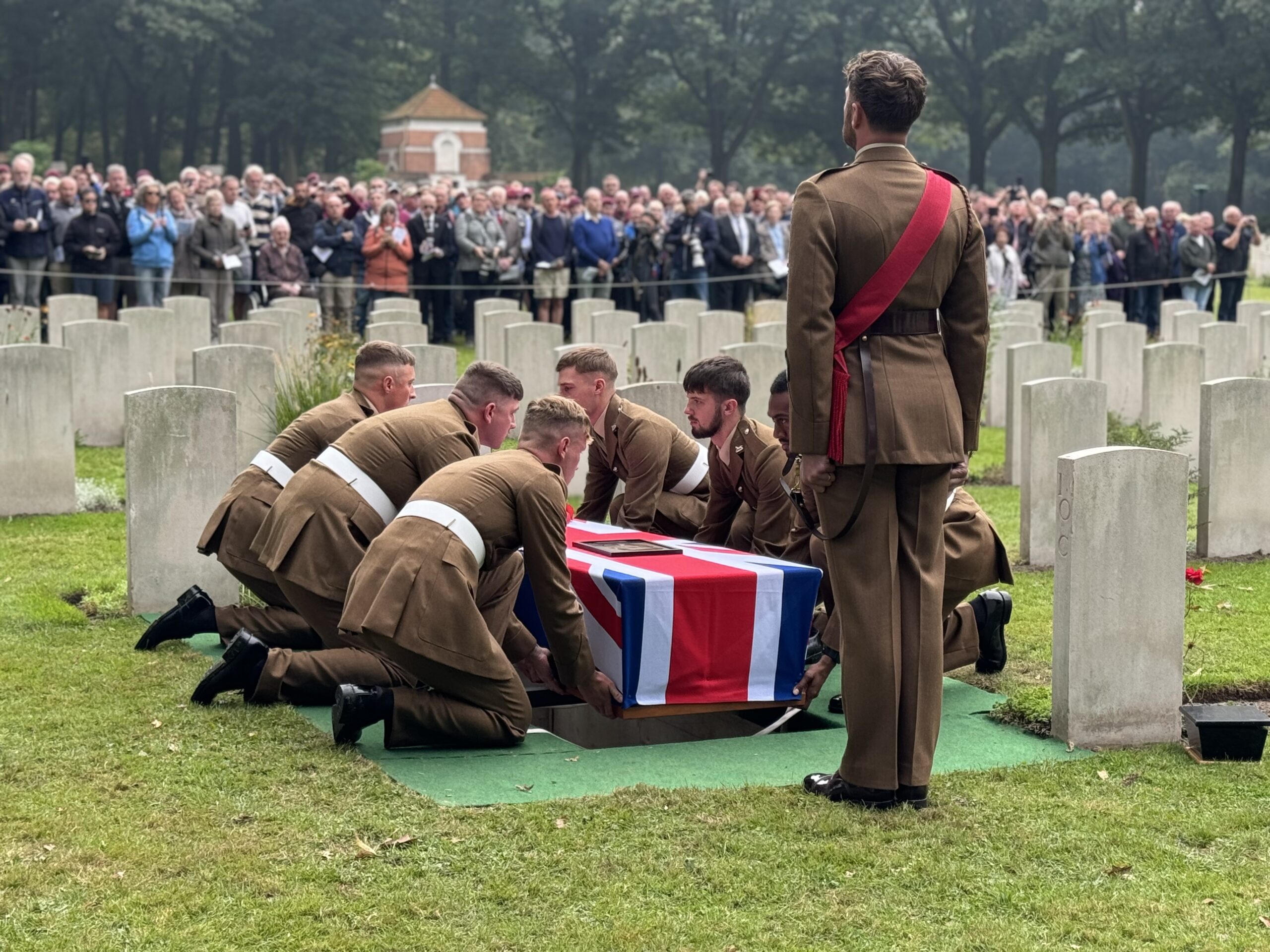“Beautiful”: English World War II soldiers finally laid to rest
Senay Boztas
“If I should die, think only this of me: that there’s some corner of a foreign field that is forever England,”
As several hundred people stood listening to the words of this famous English war poem, the sun broke through onto a corner of a foreign field and the final resting place of English World War II soldier, private Henry Moon.
Moon, a 21-year-old private in 7th Battalion The Green Howards, landed in the Netherlands on June 6, 1944. He was in the village of Bemmel at the end of the ill-fated Operation Market Garden, as the Germans launched a mortar attack. On October 1, he was reported killed in action, his body for decades missing.
But thanks to an extraordinary Dutch and British operation to recover war graves and commemorate Allied soldiers, Moon’s remains were formally laid to rest on Wednesday morning.
His body had been discovered, buried in a shallow soldiers’ grave on that battlefield, during roadworks on the A15 highway, almost eight decades later. His possessions were matched with his battalion, and then the DNA search began.
David Snowdon, 41, and a police officer in Edinburgh, was informed by the Commonwealth War Graves Commission in 2020 that his great uncle might have been discovered and was asked for a DNA sample – which matched. At a military funeral service, attended by the Royal Yorkshire Regiment, he said it was important that there was a place for the family to remember.
“He had a name on a wall, and it was ones of tens if not hundreds of thousands,” he said. “It can get lost in there. The fact that he has been recovered and the effort that the Dutch government has made to identify him has got us to the stage where we can have a grave. It means family can attend, this is immortalised, future generations can come and see him. It is tragic that there are still so many names on those walls that don’t have that. Henry is very fortunate to have that today.”
The family had known little about their great-uncle, he said, apart from the fact that he had died in the war. “My grandfather and my other great uncle would always get really upset every time they thought about him, talked about him, but they never really went into any detail about how he had died in the war,” he added. “All we knew is, he did. Millions died in that war, there are so many different stories, and his is one of them.”
A funeral for lieutenant Dermod Anderson, whose remains were recently discovered and identified thanks to DNA from his great nephew Julian, was due to take place on Wednesday afternoon. Anderson had died in a German attack on September 25, 1944, and his remains were discovered in an investigation into suspected lost graves near the old church of Oosterbeek.
Tracey Bowers, head of the commemorations team at the British ministry of defence, said efforts continue to identify and honour soldiers lost in war. “We believe that everyone should have a final resting place, and their families should be able to have closure,” she said.
Private Ayden Hadfield, from Sheffield, one of the soldiers to fire a rally of shots at the end of Moon’s funeral, said such events are important, both to honour sacrifices in the past and for modern day soldiers. “For us, it’s very important, knowing if something happened to us, if you were found, you’ve got a chance of getting a real, proper burial,” he said.
“It’s beautiful, at the end of the day. I imagine the people who buried him, there and then, hastily, never probably thought that this was how he was going to properly be put to rest.”
Thank you for donating to DutchNews.nl.
We could not provide the Dutch News service, and keep it free of charge, without the generous support of our readers. Your donations allow us to report on issues you tell us matter, and provide you with a summary of the most important Dutch news each day.
Make a donation